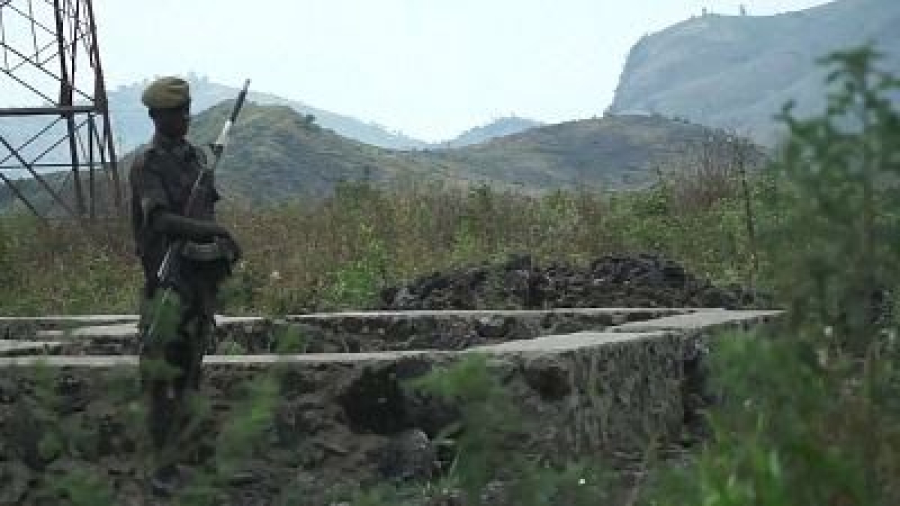In the hills surrounding Saké, a town in the eastern Democratic Republic of Congo (DRC), young Congolese like Alpha stand watch, as fighters from the M23 rebel group lurk nearby.
The M23 rebels are just one of over 100 armed groups vying for control of the mineral-rich region near the Rwandan border.
Amid this volatile situation, many local youths have joined a community-based armed group known as the Wazalendo, meaning “Patriots” in Swahili, to defend their homeland.
“I took up arms because of the security situation in my country,” says Alpha. “We are fighting the enemy—the M23 movement—who are foreigners in our land. They are not Congolese and are waging war against Congo. We will not allow them to take our country.”
While many residents have already fled Saké, the Wazalendo and Congolese armed forces remain in the town, along with some civilians, uncertain about their future. “I can see the enemy on the other hill,” says local resident Bitakweya. “Here at home, it’s the Wazalendo and government soldiers. I don’t know if I will stay as long as the enemy is nearby.”
Further east, away from the frontline, UN peacekeeping forces with MONUSCO patrol the streets of Goma, the capital of North Kivu province. The M23 rebels, which Kinshasa accuses of receiving support from Rwanda—a charge Rwanda denies—are positioned just a few dozen kilometres from the city.
Brig. General Ranjan Mahajan, MONUSCO Center Sector Commander for North Kivu, explained that the mission’s strategy is flexible, responding to the level of violence posed by armed groups and aimed at protecting civilians.
The security situation in eastern DRC remains dire, with ongoing clashes, civilian massacres, and massive displacements. As of July, the UN estimated that 2.8 million people were displaced in North Kivu province alone. Kinshasa continues to accuse Kigali of supporting the M23 rebels, an allegation Rwanda firmly denies.
